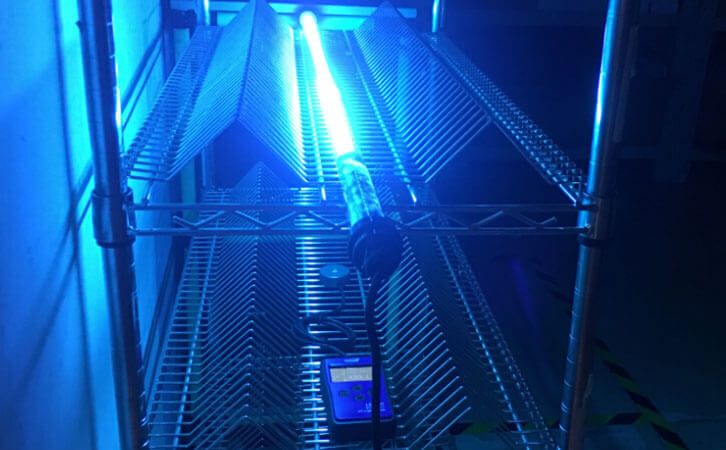Factors Affecting the Sterilization Effect of Ultraviolet Sterilizer
Ultraviolet sterilizer is an end product in water treatment. This type of sterilizer is relatively stable in the current market and is widely used in various industries. At the same time, this type of sterilizer is actually very close to our lives. Ultraviolet sterilizers are usually used for UV intensity testing. Ultraviolet sterilizers are also used in the sterilization of drinking water. Like the sterilizer that specializes in sewage treatment, we collectively refer to the sewage UV sterilizer. Although the sterilization effect of UV is also very satisfactory, there are actually many factors that can cause the UV sterilizer to fail to achieve the expected sterilization effect.
We summarized some factors that affect the sterilization effect of UV sterilizers are as follows:
1. The temperature of the disinfection environment
The ambient temperature will directly affect the radiation output of the ultraviolet sterilizer ultraviolet lamp. In general, the UV light irradiated by UV lamps is the strongest when the temperature is 40 degrees Celsius. In addition, some scholars believe that ultraviolet rays have the strongest bactericidal effect at room temperature, that is, about 20 degrees Celsius to 35 degrees Celsius. The lower the temperature of the sterilization environment around the ultraviolet sterilizer, the less the output of ultraviolet rays. The higher the temperature, the more ultraviolet radiation is absorbed due to the increase in radiation, so its output will gradually decrease. However, most microorganisms are sensitive to ultraviolet rays. When the temperature is relatively low, the low temperature can affect the output intensity of ultraviolet lamps. Some ultraviolet lamps output intensity at 4 degrees Celsius. In summary, the lower the sterilization temperature, the resistance of bacteria will increase and the ultraviolet sterilization effect will weaken. When the temperature is lower than 0 degrees Celsius, the sterilization effect will be completely lost and the disinfection effect will be affected. If the temperature of the disinfection environment is too high or too low, the disinfection effect of ultraviolet rays will be affected.
2. Disinfection time
Under a more standard disinfection environment, the UV disinfection time will also affect the disinfection effect. In 2002, the Ministry of Health's disinfection technical specifications stipulated that the ultraviolet air disinfection irradiation time was 30 minutes to 60 minutes. It was clearly stated in the disinfection precautions of the ultraviolet disinfection: During ultraviolet disinfection, the surface of the lamp should be kept clean and there should be no oil and dust. The disinfection environment should also be kept clean and dry to reduce dust and water mist. Only in this way can the best disinfection effect be achieved.
3. Ultraviolet intensity detection
The application of ultraviolet disinfection technology is very extensive and the detection of ultraviolet radiation intensity is also very important. In the process of sterilization by ultraviolet irradiation, it is necessary to ensure the intensity of ultraviolet radiation. If it is unstable, it will greatly reduce the effect of disinfection and sterilization.
The UVC UV light meter LS126C is dedicated to the measurement of UV sterilization radiation intensity. UVC UV light meter LS126C is an indispensable optical detection instrument for ultraviolet intensity detection.
The detector is located on the front surface of the instrument, which is convenient to use.
The probe is connected to the host using high-temperature wires.
The probe can be used in high-temperature environments.
-
The probe comes with a magnet and a detachable handle, which facilitates the fixing and operation during the detection process.
If you need to test the uv irradiation intensity of the UVC LED light sources, LS125+UVCLED-X0 probe UVC light meter can be used.
